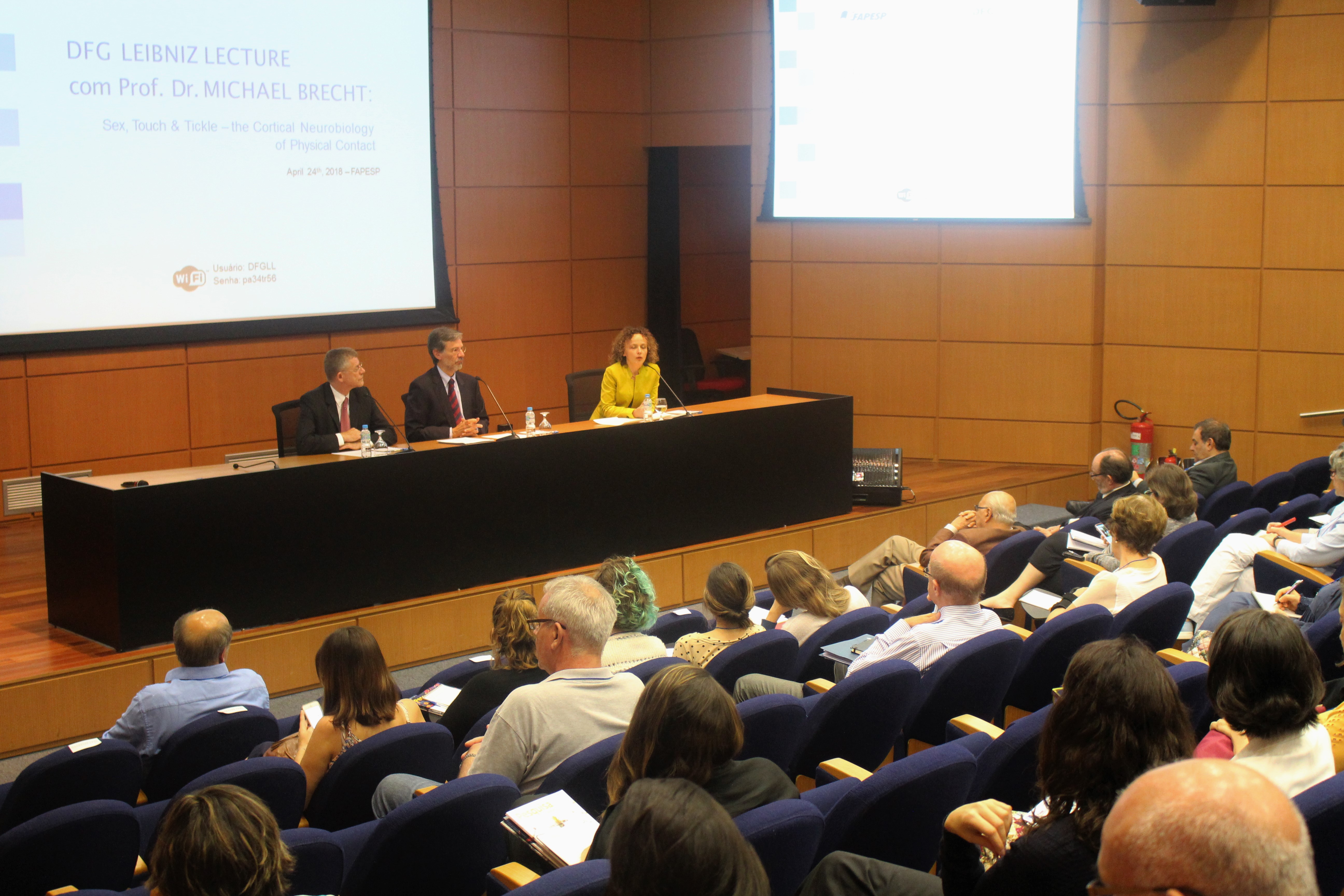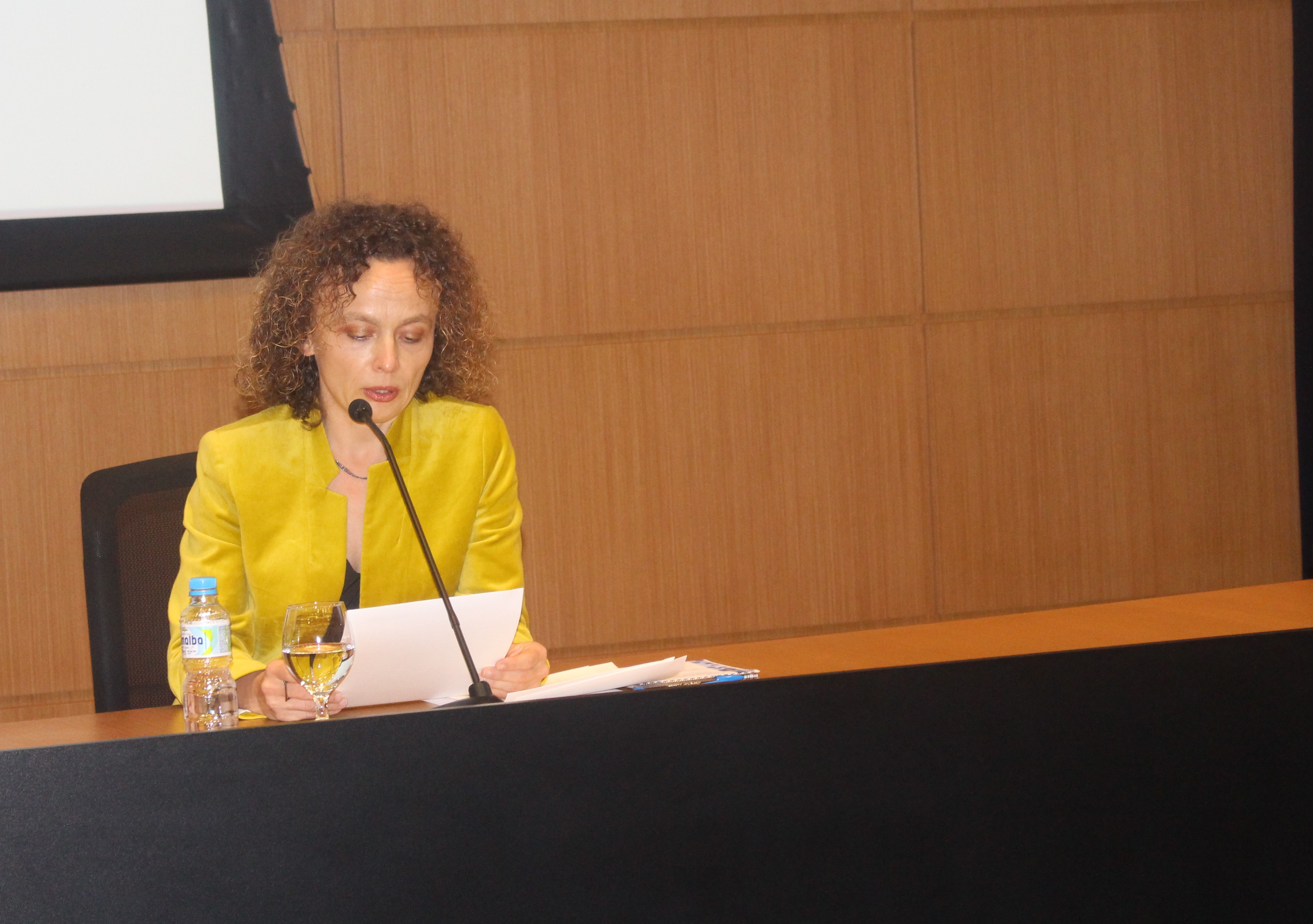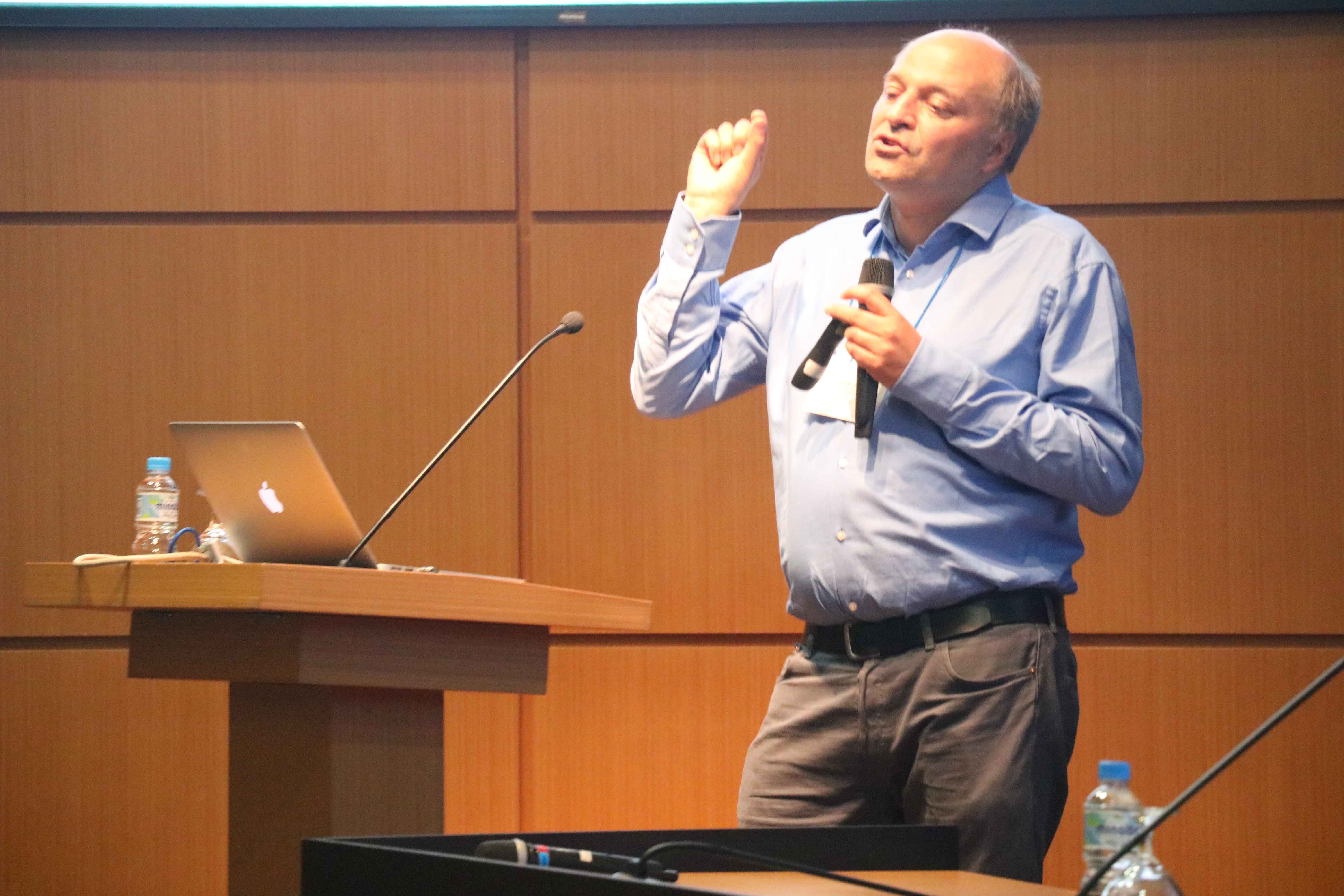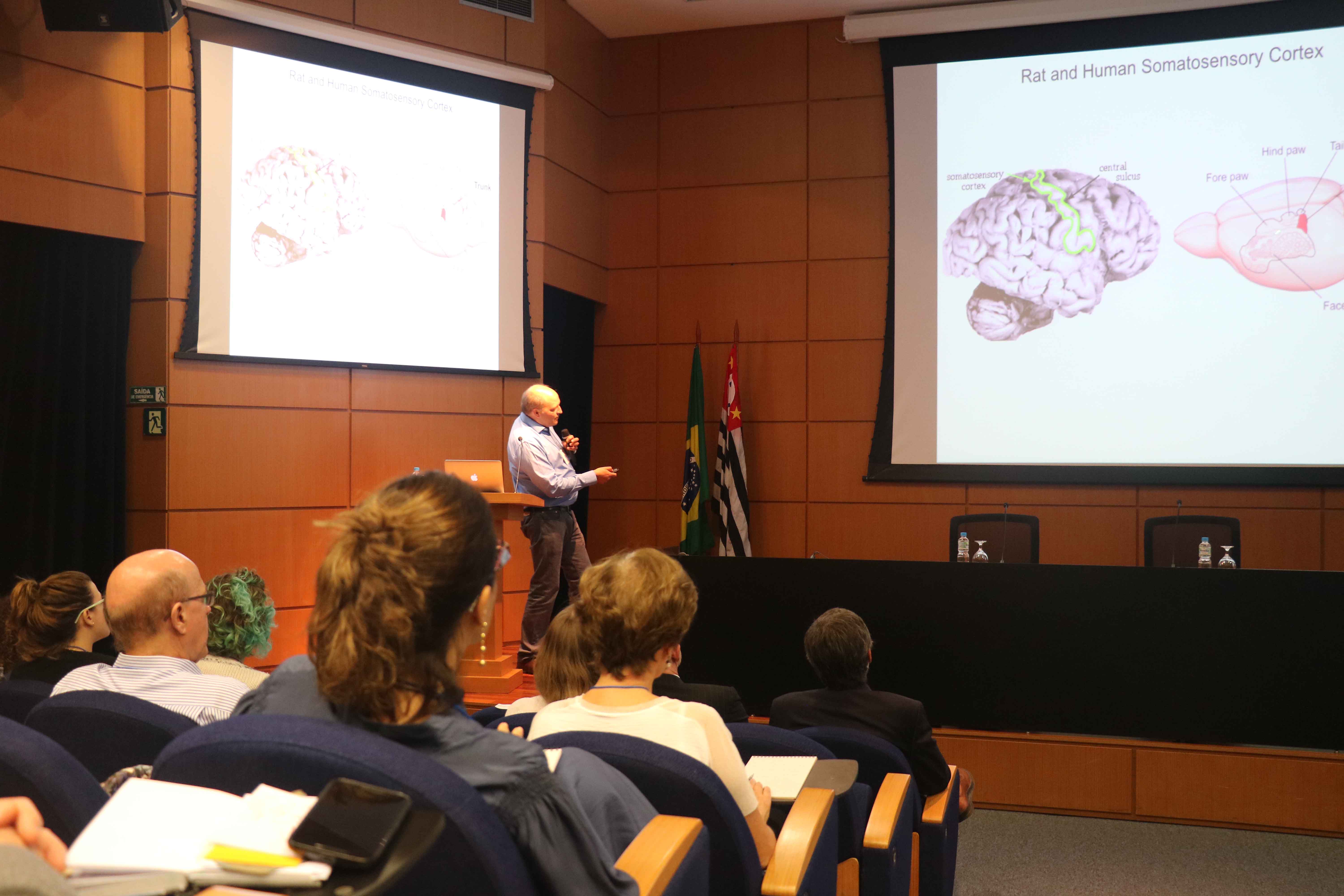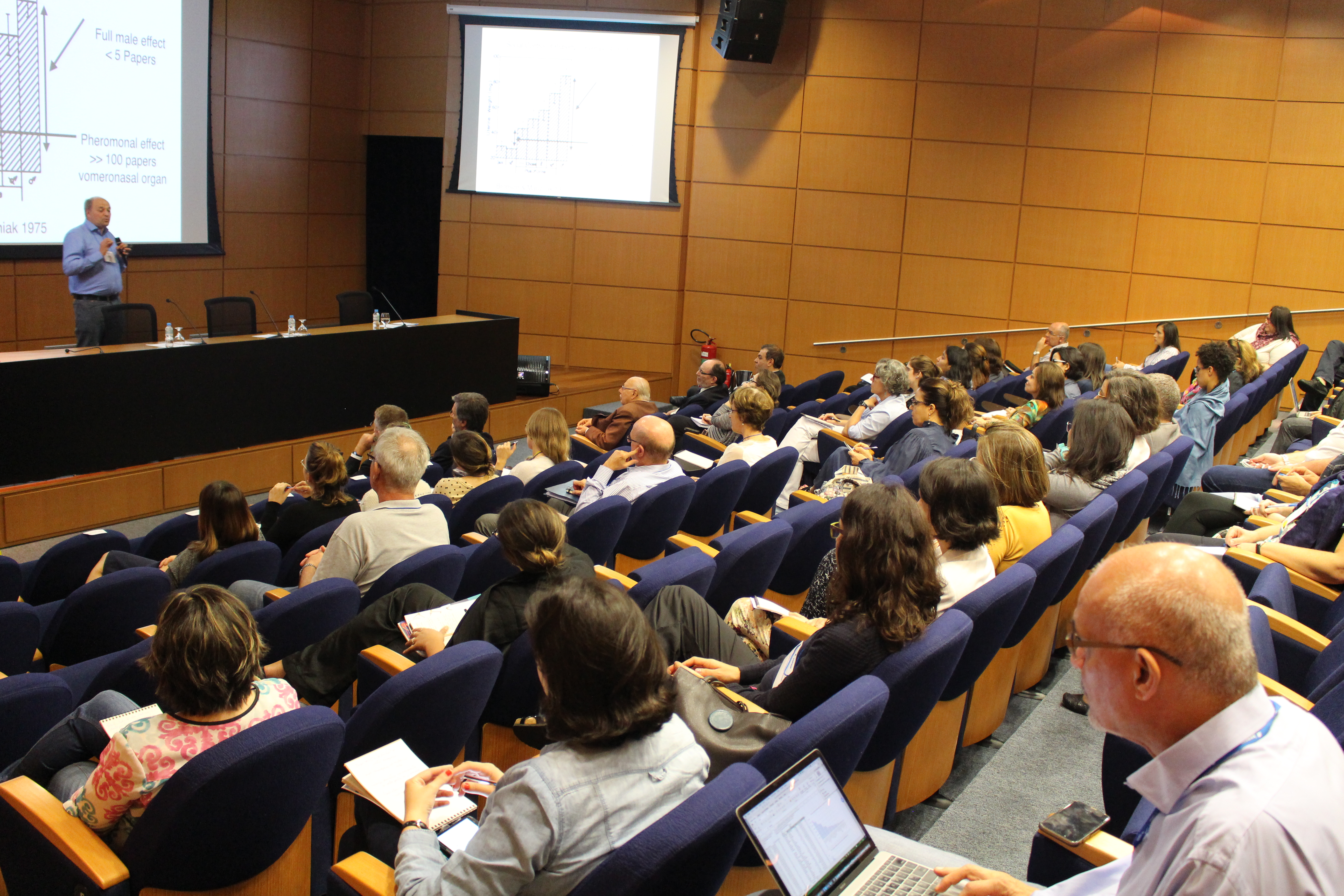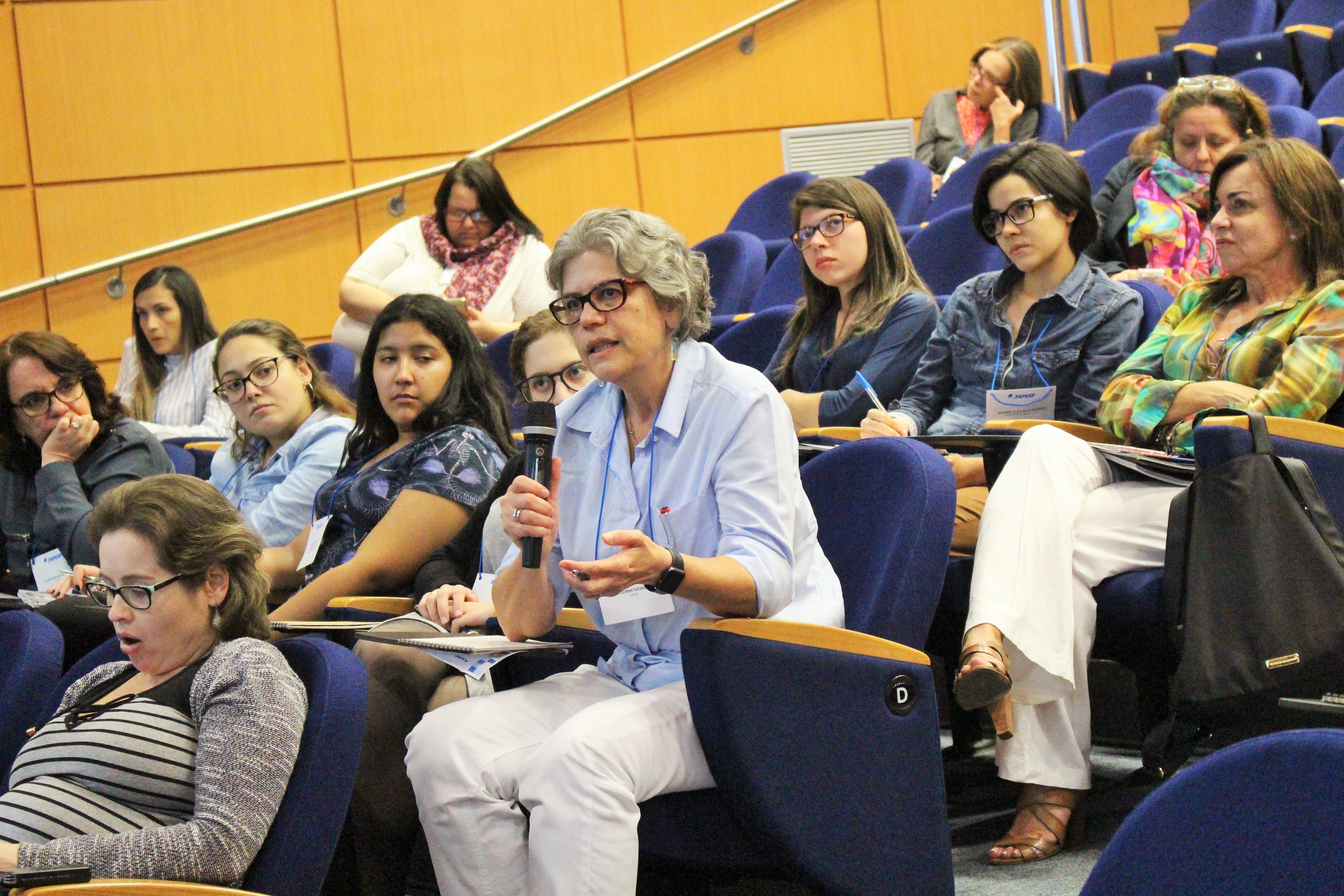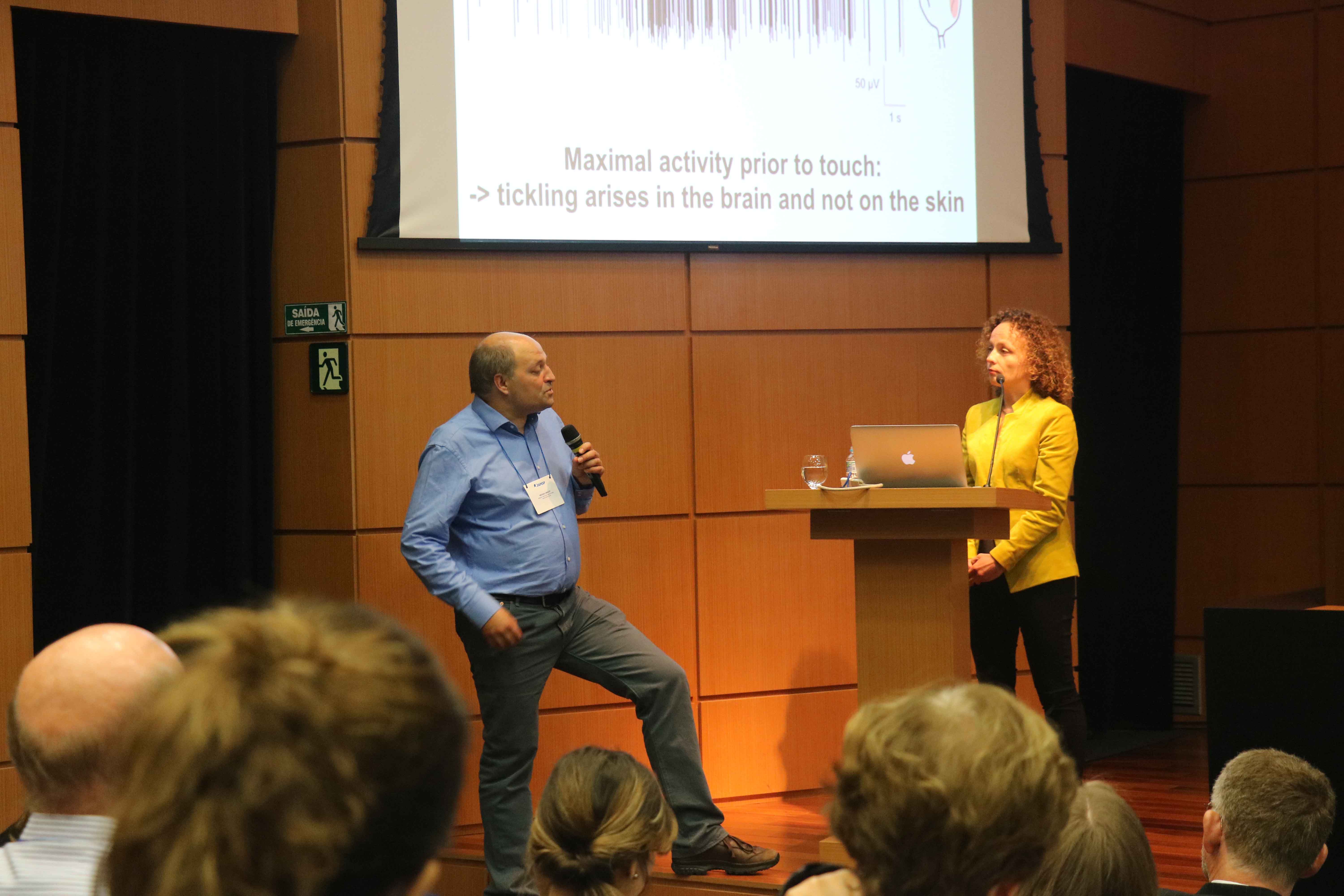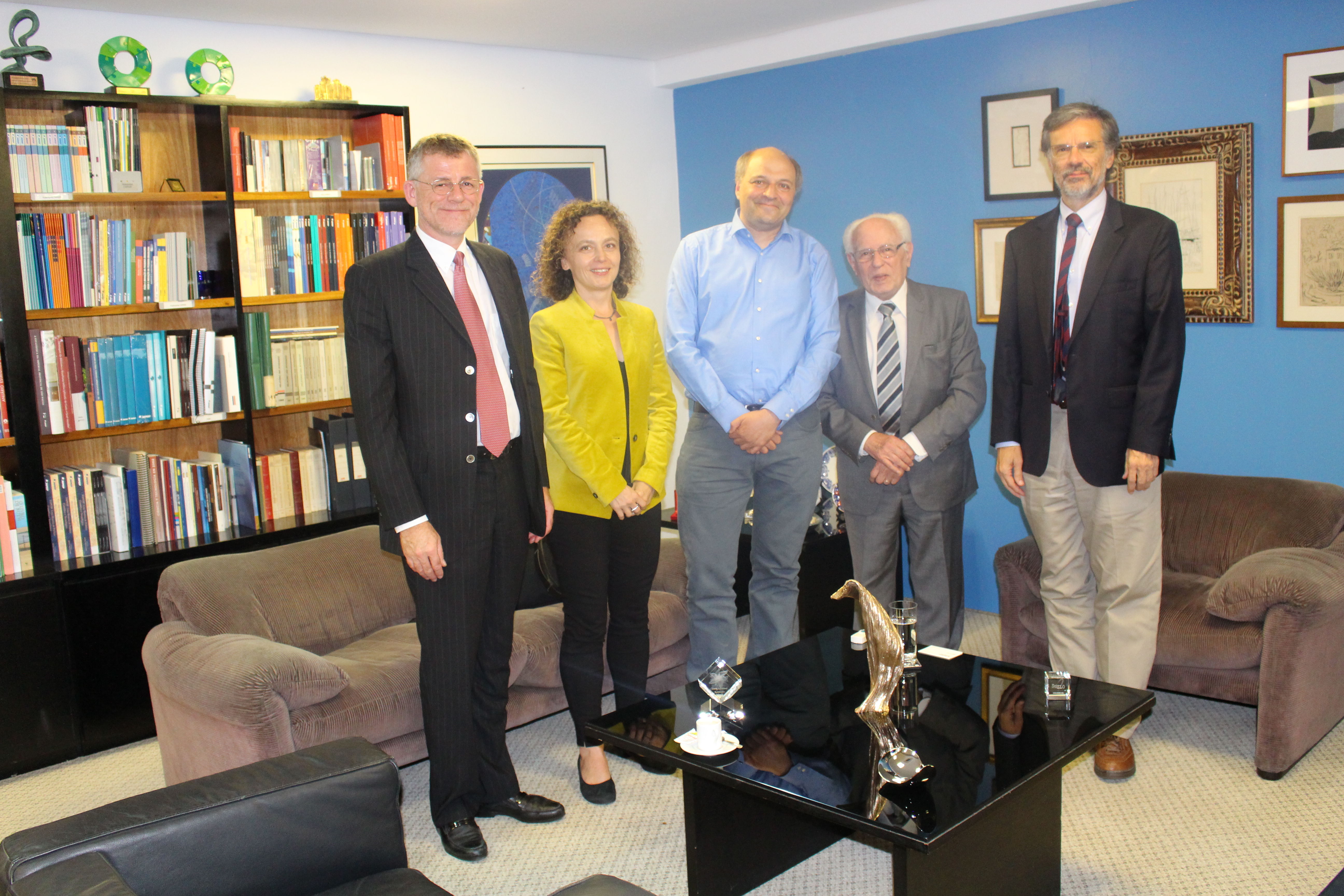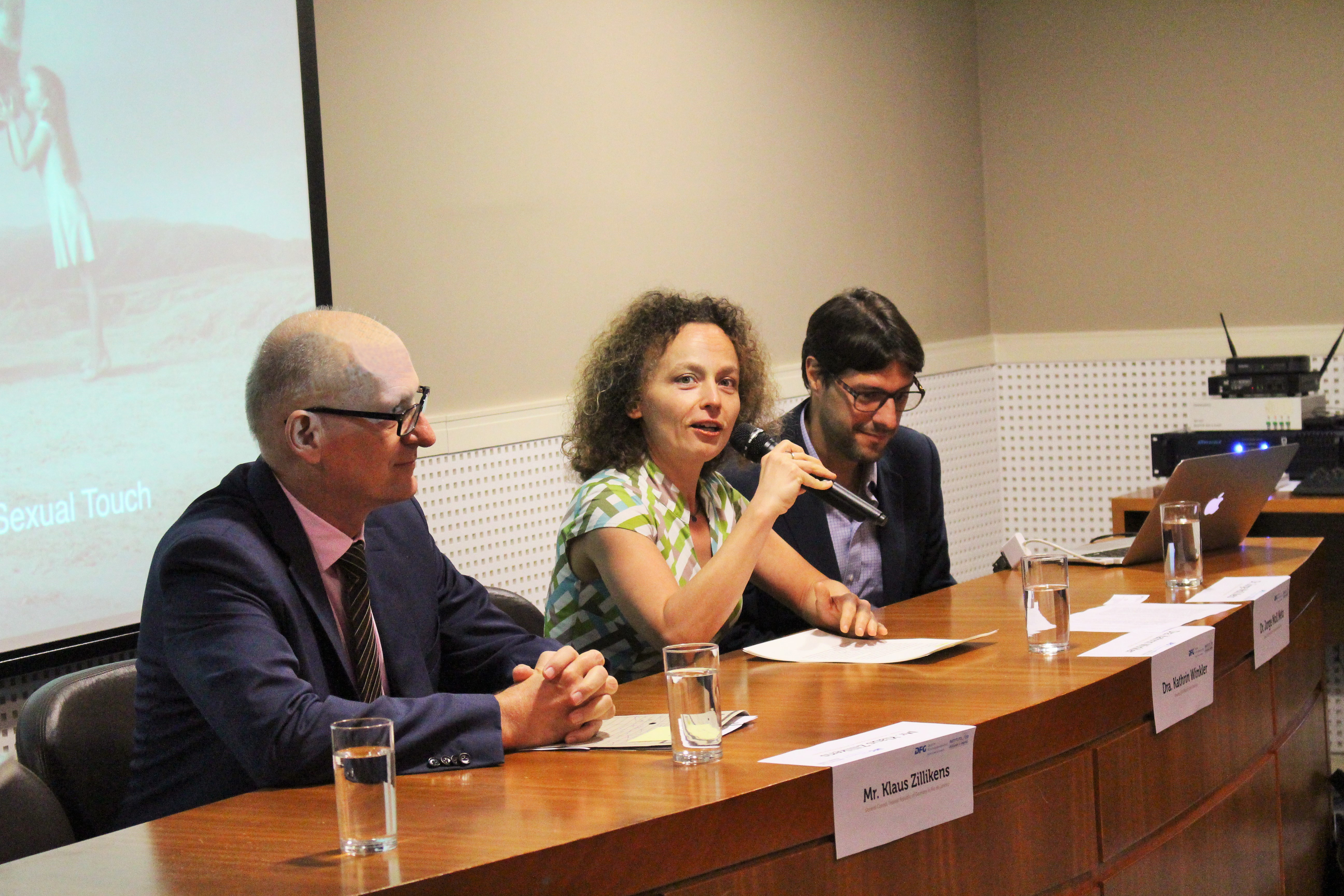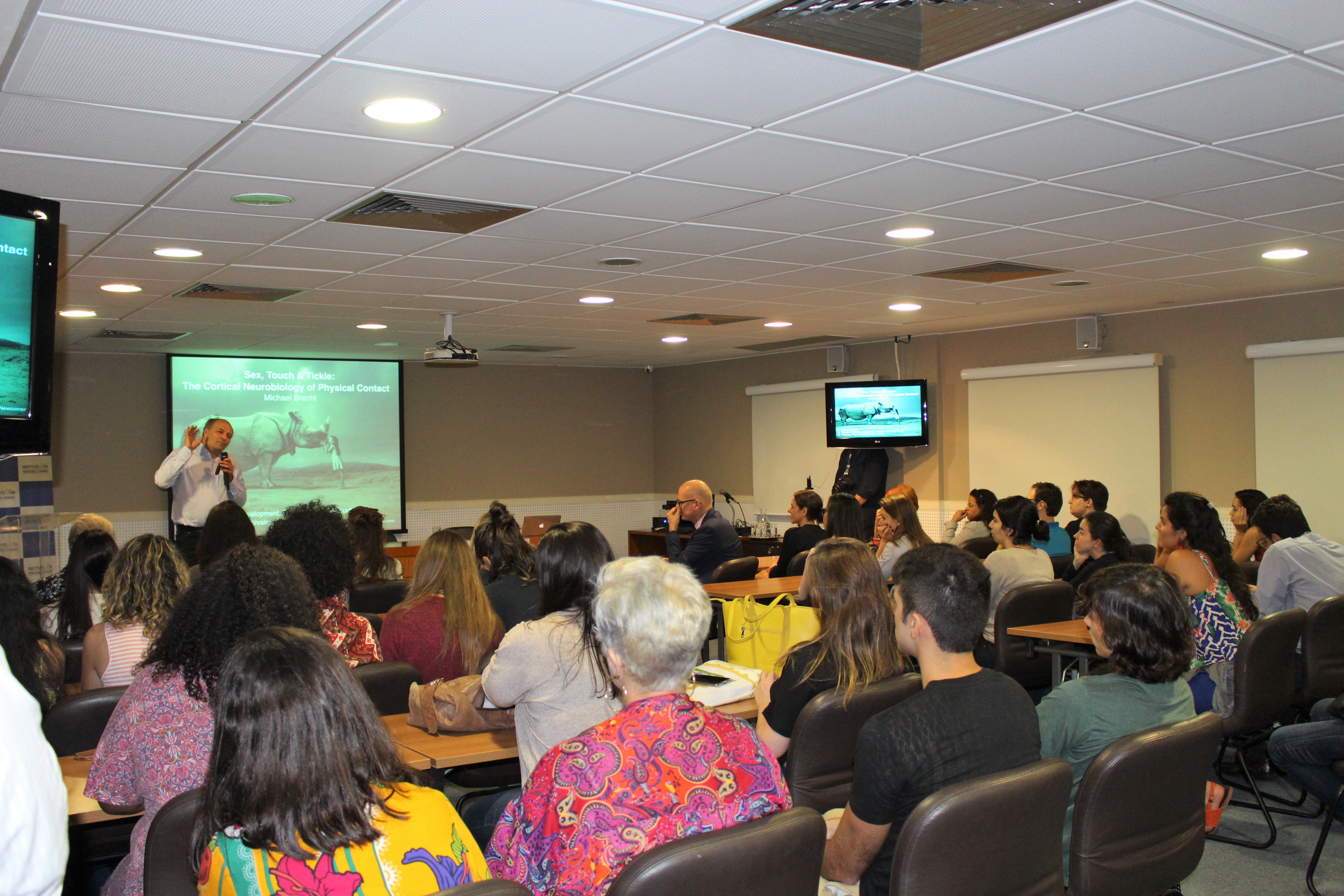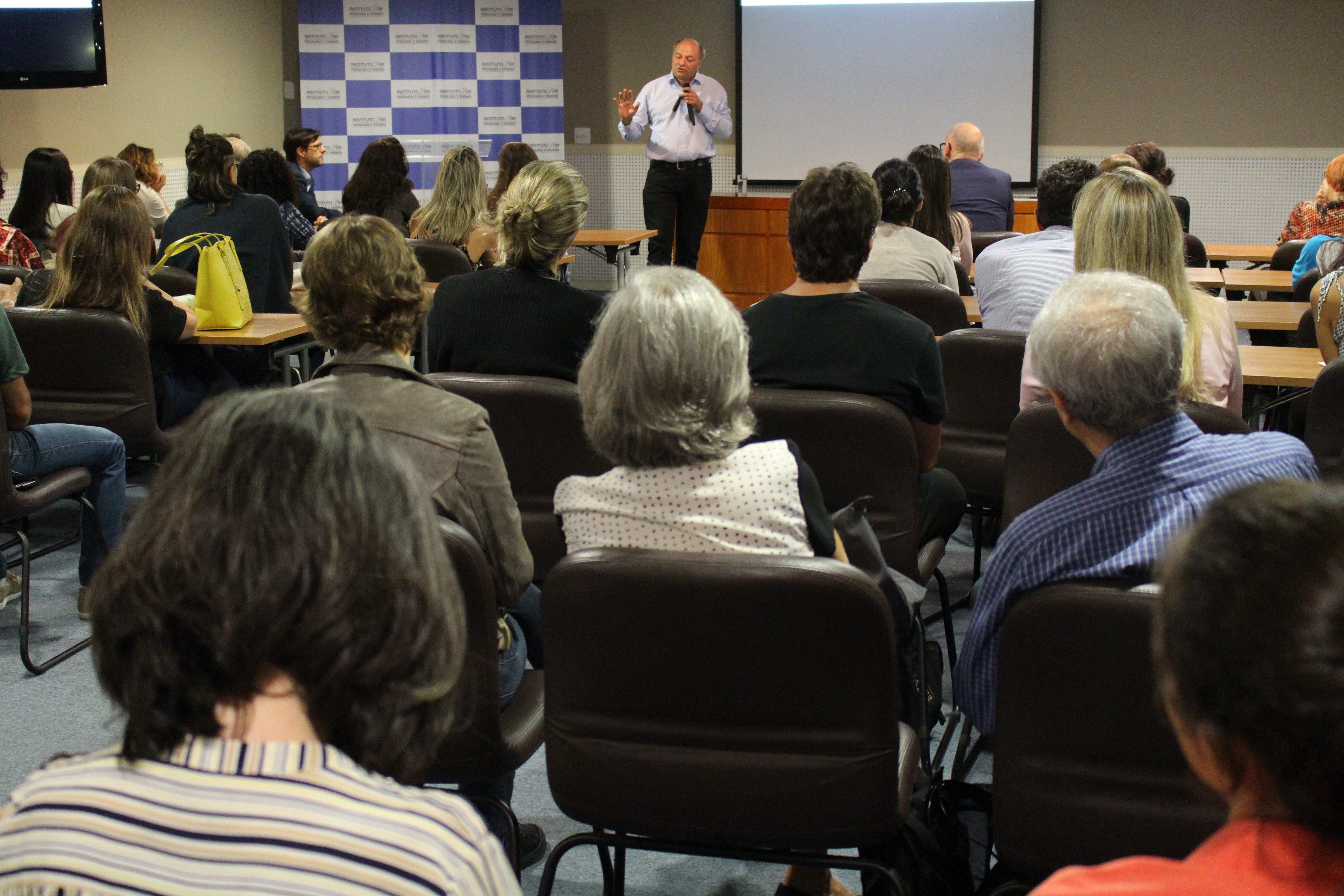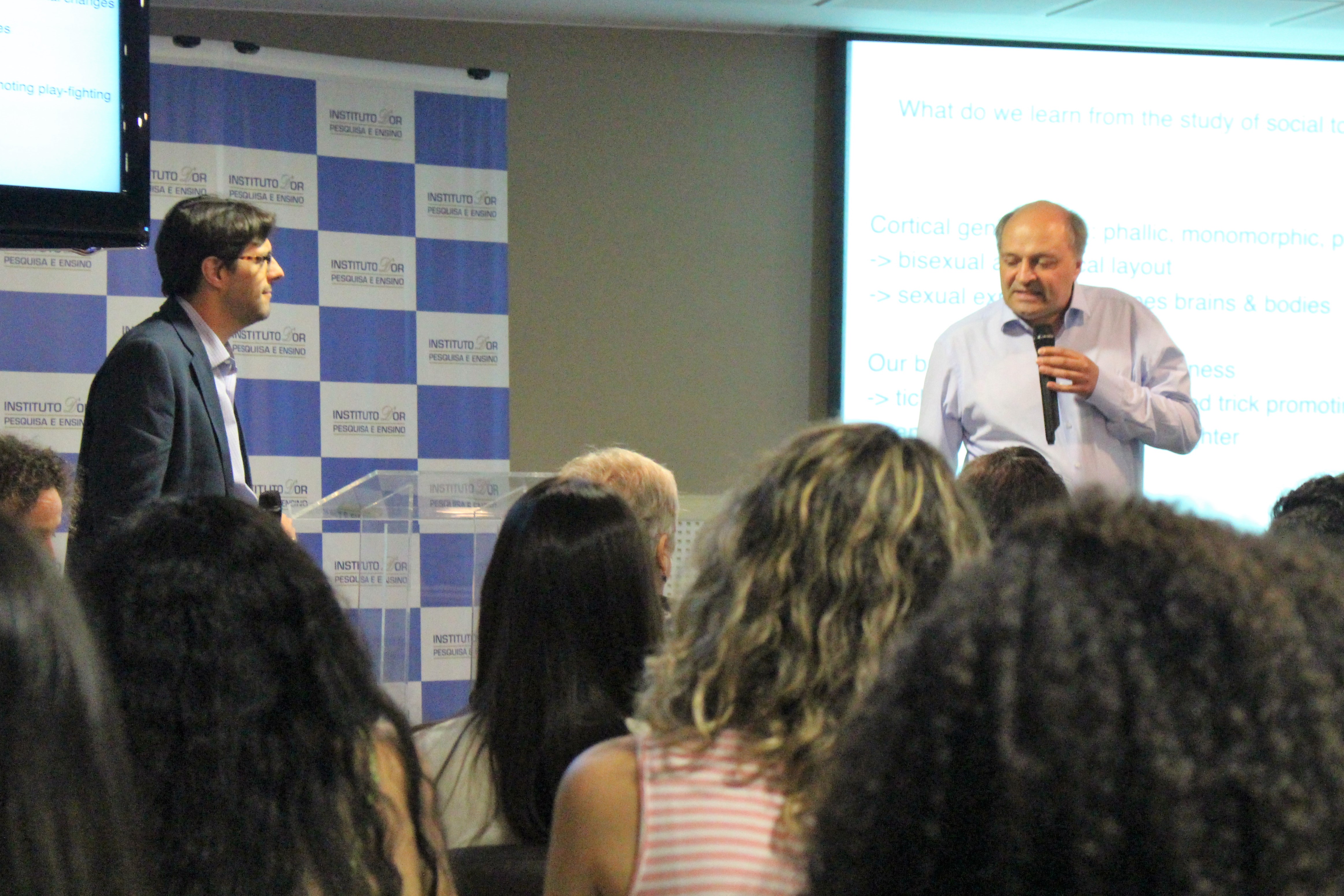Neuroscientist Michael Brecht gives Leibniz Lectures in Brazil
Axel Zeidler, German Consul General in São Paulo, Brito Cruz, Scientific Director at the FAPESP and Kathrin Winkler, Head of the DFG Office Latin America, during the welcoming remarks at the opening
© DFG
(14.05.18) Renowned neuroscientist Professor Michael Brecht presented his research work in Brazil for the first time at the end of April. The title, “Sex, Touch & Tickle – the Cortical Neurobiology of Physical Contact”, awakened the interest of around 150 people in total, who attended the Leibniz Lectures in São Paulo and Rio de Janeiro organised by the DFG Office Latin America. Researchers, doctoral researchers and students gained insights into Brecht’s unusual research, in which he investigates how the mammalian brain reacts to tickling or sexual touch.
Brecht was awarded the Gottfried Wilhelm Leibniz Prize by the German Research Foundation (DFG) in 2012 for his original research approaches and innovative methods. “I am interested in social interactions, and one way to approach them is to investigate the effect of physical contact on the brain,” he says. He carried out his investigations on rats; part of this work involved observing the behaviour of animals when touched and tracking the reaction in the somatosensory cortex, which is responsible for the central processing of sensory stimuli.
A research project that involves studying rats being tickled, among other things, might appear unusual at first glance, and in fact around 20 years ago the idea that rats are ticklish and even enjoy being tickled was initially greeted with scepticism by the scientific community. “At the time the first studies were carried out, people were looking into the question of whether chimpanzees can smile. However, the hypothesis that rats might be ticklish, and that they actually enjoy this type of touch and make noises similar to laughter, was a remarkable research question. And that was how I arrived at the topic,” the Leibniz prizewinner recalls.
Research results have helped demonstrate and understand this previously apparently implausible phenomenon better. The observation was also made that rats’ behaviour changes after being tickled. They jump for joy – something they do not otherwise do. “Rabbits, for example, behave this way when they are outside for the first time, or guinea pigs do it if they are content. People also jump for joy, for example if someone shoots a goal in the Maracanã Stadium. Rats, on the other hand, normally do not. We have observed this reaction only after tickling, and it signals that they are having fun,” Brecht explained during his lecture, amusing his audience with this anecdote.
With the help of video recording and ultrasound measurements, Brecht found that tickled rats make sounds similar to those they make when playing with each other, and the reactions in the cortex are also similar. He deduces from this that the social function of tickling is similar to that of play and emphasises how important the corresponding studies on the subject are.
“In the past, neuroscience has not focussed very much on pleasure, and the topic is often seen as too simple and not serious enough. However, if we do not investigate animals' normal behaviour, we will not be in a position to heal diseases. This is because enjoying play can actually become a problem if individuals have no control over it. Studies with hyperactive children have shown that medicines that have been administered, such as Ritalin, massively curb their urge to play, and that this makes them calmer. If we give these substances to rats, they also stop playing with each other. We need to understand the effect of such substances better in order to make our decisions,” Brecht said, explaining the significance of his work.
Klaus Zillikens, German Consul General in Rio de Janeiro, Kathrin Winkler, head of the DFG Office Latin America and Jorge Moll Neto, Chair of IDOR, at the opening
© DFG
The line of research that deals with sexual touch has also produced important results. For example, Brecht discovered that touches on rats’ genitals significantly alter the parts of the brain corresponding to the sexual organs and result in premature puberty. “The influence of touch is not limited to the skin; it results in drastic structural alterations in the brain and the entire body. If we consider this fact as well as research results in relation to humans, it is clear how very serious sexual abuse of children is, and what a negative impact this experience has on development. In the case of adults who have been sexually abused in childhood, the impacts of this traumatic experience can still be recognised in the brain and are still clearly felt by those affected,” Brecht added.
The DFG uses the Leibniz Lecture format to present outstanding research topics overseas and to promote dialogue between renowned researchers from Germany, the scientific community in Brazil and the general public at that location. “The lectures provide researchers from both countries with the opportunity to gauge joint potential and excellence in their respective subject areas,” the head of the DFG Office Latin America, Dr. Kathrin Winkler, explained.
For the first time, the event in Rio de Janeiro was organised in cooperation with one of the most important research centres in the field of neurosciences, the Instituto D’Or (IDOR), and it was a great success, as the presence of numerous researchers and students from the institution and from the partner universities showed. “I am delighted that so many people attended, and that we could hold the Leibniz Lecture here. Integrating such events into the relevant research setting and directly in the vicinity of active research programmes is the most promising way of fostering initiatives and establishing long-term cooperation arrangements, which is a central goal of our office here in Brazil,” Winkler said.
The FAPESP once again provided the venue and acted as joint organiser for the Leibniz Lecture held in São Paulo. In her welcoming remarks, Winkler emphasised that the well-established cooperation between the DFG and the FAPESP, which is now in its twelfth year, has always been a fertile ground for academic and scientific policy exchange and has given rise to numerous joint initiatives.
On the occasion of the lecture, Brecht was invited to meet with FAPESP President José Goldemberg, who expressed his recognition and his great interest in the neurosciences: “Despite all the progress, we remain as far away as ever from recreating the complex connections of the human brain. I wonder, will our feelings and emotions ever become programmable?” The Leibniz prizewinner's answer was not long in coming: “We only know very little about the brain, and even what has been researched still leaves many questions unanswered – that's exactly what motivates and fascinates me as a neuroscientist.”
Useful links:
